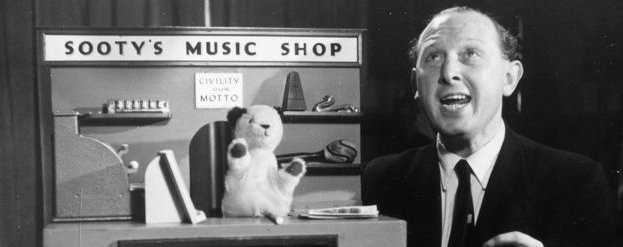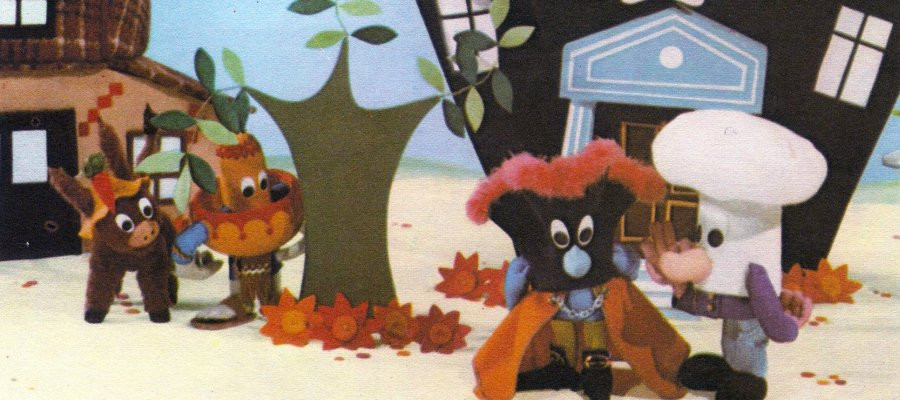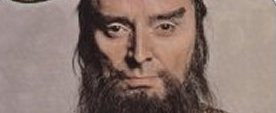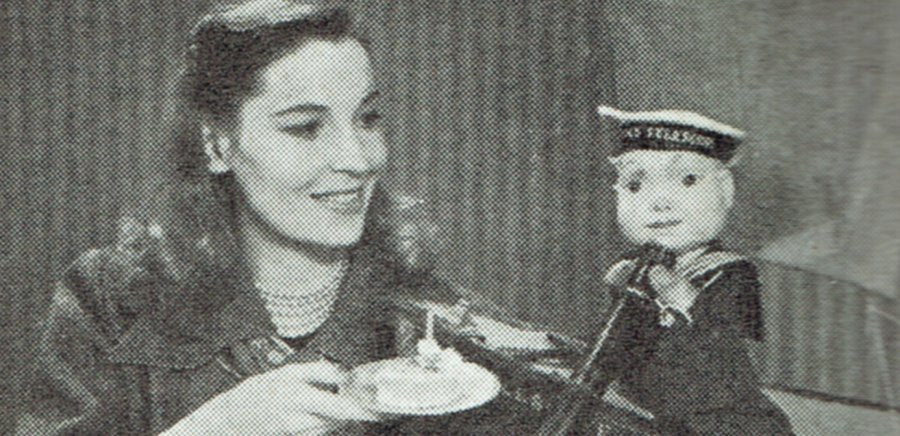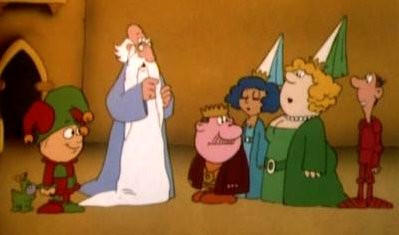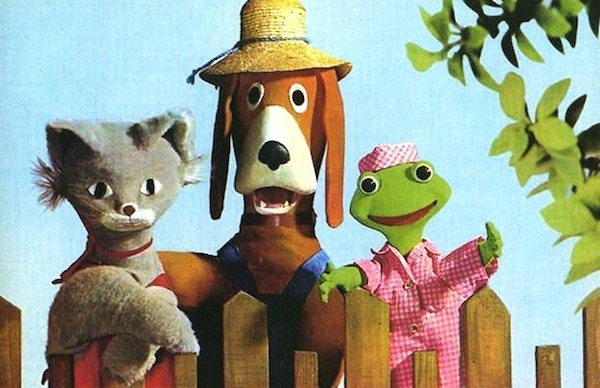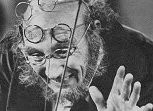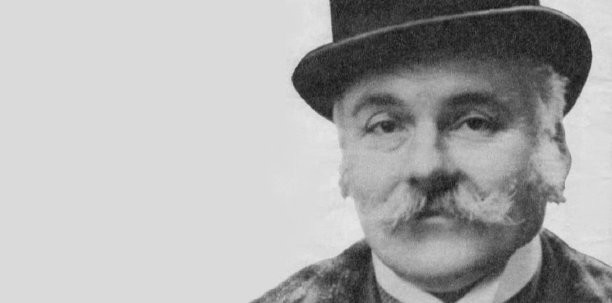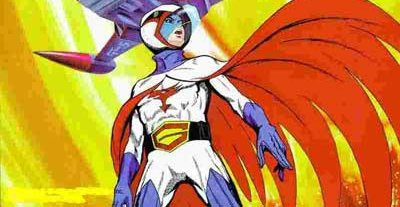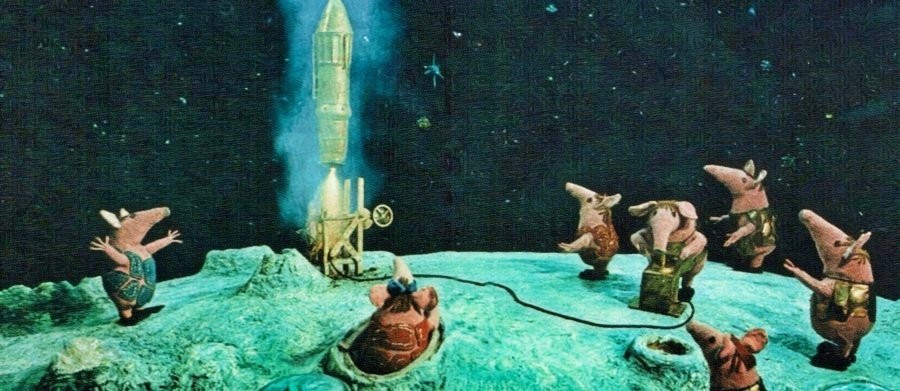
Clangers
1969 - United KingdomAnother successful children's series from the writing/production team of Oliver Postgate and Peter Firmin, the Clangers were a clan of pink, woolly, mouse-like aliens who lived on a small blue moon. They wore suits of body armour to protect themselves from frequent meteor showers and took their name from the sound made when they battened down their dustbin-lid hatches.
After creating a number of successful black and white children's animated programmes for the BBC, Postgate was informed by the Corporation in 1968 that all subsequent series should be made in colour, as a full colour service would be operating on BBC1 from late 1969. The programmes were not only to be in colour but were to be 'colourful.' The new series would have to be something new and quite astonishing. Inspiration came from Postgate's twins, Simon and Stephen, who several years earlier had told their father a story of their own. It was about a giant called Edward who lived on the other side of the moon, and survived on soup. When Postgate asked his children where they would obtain the soup from, they quite confidently explained to him how the moon was full of soup and all Edward had to do was unscrew a volcano and suck it through a straw. When he explained that living on the dark side of the moon would be very, very cold, they replied that the soup was very, very hot.
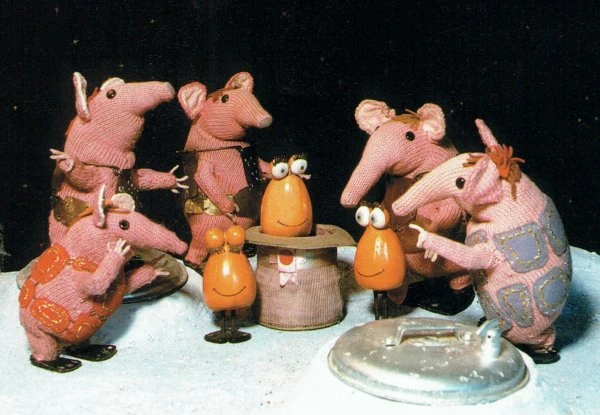
Postgate also recalled a story he had written for a series of books aimed at teaching children to read called Noggin First Reader, which was based on the Noggin the Nog television episodes. In this particular story called Noggin and the Moonmouse, a small mouse-like creature had arrived on Earth in a spacecraft. With the Apollo programme nearing its objective to put a man on the moon before the end of the decade, the premise of a children's programme set in space, or at least on a moon-like satellite, was not only topical but would also galvanise the enthusiasm of its target audience.
In his autobiography 'Seeing Things' published in 2000, Postgate explained how the idea was expanded: 'It was unlikely that the visitor would have come from our moon because Edward lived there. But there would be other moons about and there's no reason why they shouldn't contain suitable soup. Also, because nowadays there was so much space-programme debris whizzing about the sky, they were unlikely to be living on the outside of their moon. They had probably taken to living in caves. The entrances to the caves would have metal covers over them and when they came out the covers would tip over and clang open like dustbin lids.' After discussing with Peter Firmin what the creatures should be called and disregarding titles like Flomps, Hambrils and Winglooms, the logical title was arrived at: Clangers - because of the sound made by the lids when they are tipped over.

The sounds that the creatures made were achieved through a Swanny whistle, Postgate reasoning that they communicated by whistling which was then translated into a human audible frequency. However, the BBC feared that young viewers would not understand what was happening and asked Postgate to record a voice-over commentary, which he reluctantly did. It wasn't until 1984 that a commentary free episode was seen. Postgate had been invited to an international conference in Germany. When he screened the episode he discovered that each of the delegates had been able to follow the story - even believing that the Clangers were whistling in their own native language.
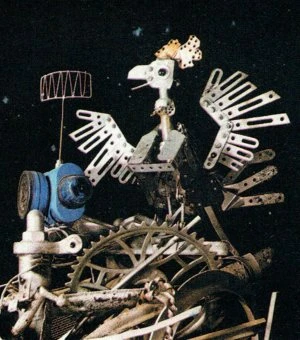
For production purposes the scripts were written out in English so Postgate and Steven Sylvester could get a rough approximation of what was being said as they recorded the Clangers' speech. This caused some consternation at the BBC, and much later led to an amusing outcome with a merchandising company. Postgate explained both of these himself: "...we just sort of blew the whistles in Clanger language for the text that was there, so it didn’t matter much what was written. But when the BBC got the script they rang me up and said, "At the beginning of episode three, where the doors get stuck, Major Clanger says 'Sod it, the bloody thing's stuck again'. Well, you can't say that on Children's television." I said “It’s not going to be said, it’s going to be whistled”, but they just said “But people will know!” I said no, they’d think "Oh dear, the silly thing’s not working properly." If you watch the episode, the one where the rocket goes up and shoots down the Iron Chicken, Major Clanger kicks the door to make it work and his first words are "Sod it, the bloody thing's stuck again!" Years later, when the merchandising took off, the Golden Bear company wanted a Clanger and a Clanger phrase for it to make when you squeezed it, they got "Sod it, the bloody thing's stuck again!"
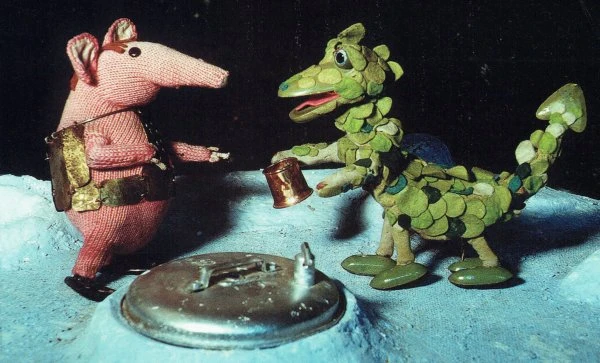
The Clangers were Major, Mother, Grandmother, Small and Tiny and they ate Blue String Pudding. Other inhabitants of the their asteroid were the Soup Dragon and the Froglets, and they also enjoyed visits from the Iron Chicken that lived in a nest in space. Although only made as a five minute filler, the Clangers became a firm children's favourite and expressed a clear anti-materialistic theme. In one episode "Treasure", a supply of gold coins land on the moon causing the Clanger family to become greedy and resentful, each building their own secret hoard. Only when Tiny discovers that the coins are made of chocolate do the Clangers return to their harmonious existence. As Postgate explained: 'They meet the slings and arrows of outrageous fortune with a consistent courtesy and civility of care. They're gentle and live their own lives and I think they'd be very alarmed if they tangled with our sort of life.'
Seen this show? How do you rate it?
Seen this show? How do you rate it?
Published on January 4th, 2021. Written by Laurence Marcus for Television Heaven.


